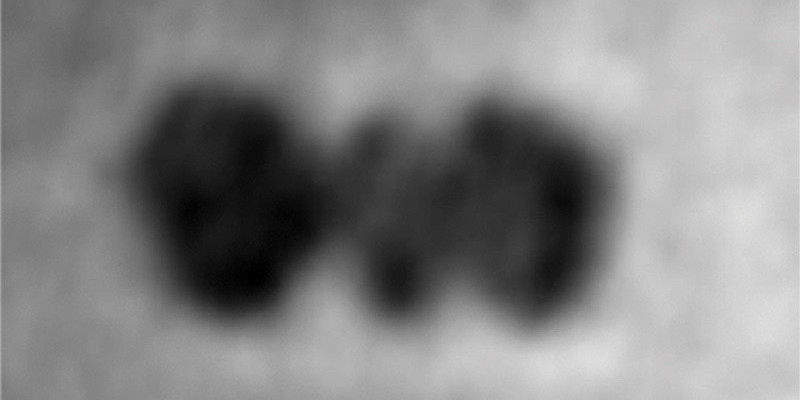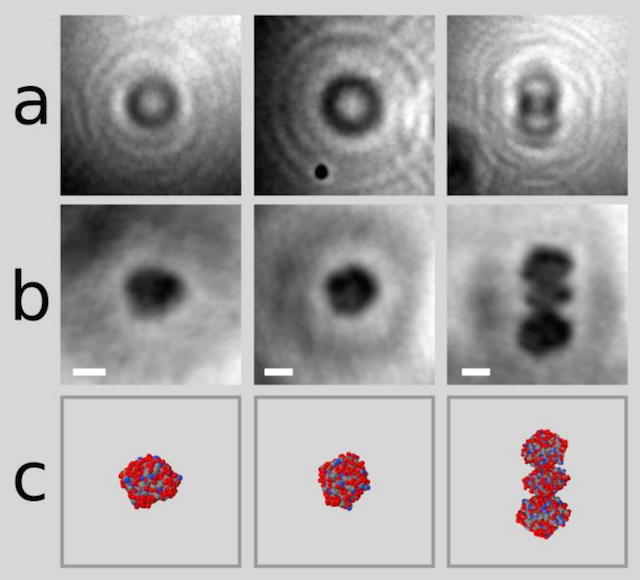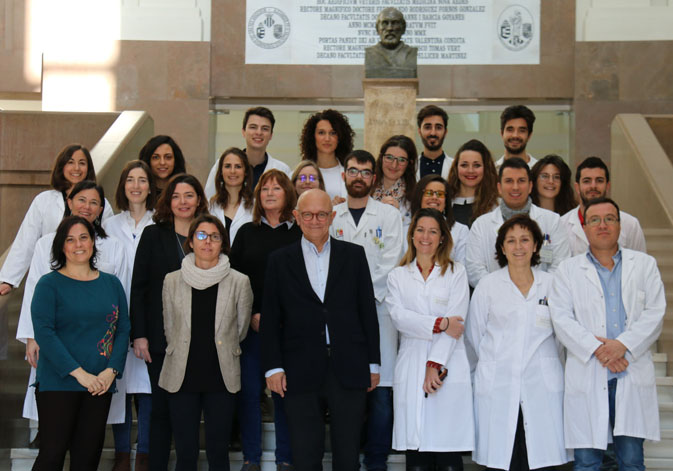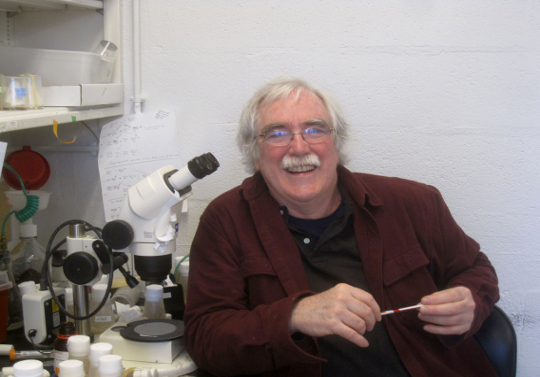
The proteins are composed by carbon, hydrogen, oxygen and nitrogen and there is no biological process in which they do not intervene.
25 january 2016
The University of Zurich, Switzerland, gets to photograph a simple protein for the first time. The scientific team lead by Jean-Nicolas Longchamp has developed a technique to be able of taking photographs of the proteins without harming them and, thus, being able of studying in a more complete way their structure, which is key to know its complete physiology and how they intervene in diseases such Alzheimer.
The obtaining of this photograph is of vital importance since it supposes a great advance: until now, proteins could not be captured because when trying to photograph them, they were exposed to methods that destroyed their molecules. Some of these methods are the X-rays or the microscopy of high-energy electrons. The new method developed in the University of Zurich is based on the graphene, an ultra-thin version of carbon. We place a solution of proteins on a graphene sheet instead of a conventional glass plate; this material holds the molecules that maintain the protein in its place and its thickness allows for using a soft backlight that do not harms the protein. Later, we place it under a holographic electron microscope, which uses the interference pattern between electrons to obtain the image.

The first line (a) shows pictures of the protein on the graphene. The second (b) are reconstructions of the image. The (c) third line shows models of the proteins generated with information acquired through crystallography of X-rays. Source: Codigoespagueti.com
Why is this photograph so important? The fact of being able of capturing the proteins helps us to know in detail its structure and, thus, being able of finding out more on diseases in which they fail, such as Alzheimer. Furthermore, they help us to further define the functions of these molecules: nowadays we know that they are necessary for any biological process. Proteins are essential for the growth, they accelerate the speed of the chemical reactions of the metabolism, transport the oxygen and the dioxide in the blood and act as defence against infections and extraneous agents. And these are just some of the examples of their multiple functions.
If we have a deeper knowledge on their structure, we will also know their functioning and we could know the precise moment in which they fail causing diseases. The University of Zurich has managed to take a great step in the study of these molecules and now they want it to be applied in the research of new medical treatments.











